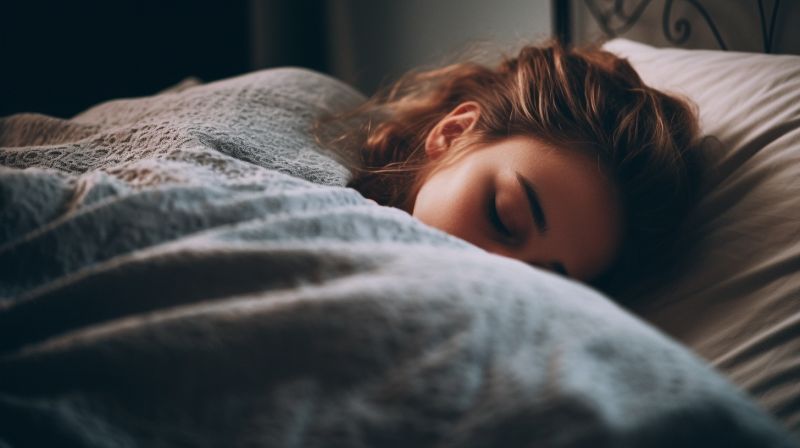Are you someone who leads an unhealthy lifestyle with irregular sleep routine? Do you consume more caffeine than an average person to stay alert during work? Are you exposed to blue light from mobile or tablet screen before going to bed? Well worry not dear readers as in this article you will find seven useful tips and strategies that will help you get a better night’s rest so that you can wake up feeling refreshed and ready to tackle your day.
The importance of sleep is one of the most overlooked aspects that factor in a person’s health and wellbeing. Getting sufficient sleep can widely improve a person’s mental health and overall well-being. Sleep deprivation has often been linked to weight gain, depression, memory loss, and not to mention the fact that it makes you look old. Unfortunately, a sleeping disorder could be a common rest clutter that influences millions of individuals around the world.
On the off chance that you're battling with a sleeping disorder, attempt unwinding procedures such as deep breathing, reflection, or dynamic muscle unwinding. You'll moreover attempt cognitive-behavioural treatment (CBT) to assist oversee your rest issues.
Strategy 1: Stick to a Consistent Sleep Schedule
Maintaining a consistent sleep schedule is an important strategy for getting sufficient rest. Without a regular sleep pattern, you are likely to disrupt your biological clock and hormone production. Try to go to bed and wake up at the same time every day, even on weekends. This will help regulate your body's internal clock and can improve the quality of your sleep, which can be disrupted by traveling or working odd hours.
There are two major things you should not do to avoid disruption of your regular sleeping schedule: sudden naps during waking hours and flexible shift work.
- Avoid napping during the day as it disrupts your natural circadian rhythm. If you do need a nap, take a 20-minute powernap but don't take one too close to bedtime or right after eating food as both are known culprits for insomnia.
- Shift work can disrupt your body's natural sleep-wake cycle, making it challenging to maintain a consistent sleep schedule. If you work shifts, try to stick to a consistent schedule as much as possible.
- Make sure you get enough rest before starting a new shift and try to limit your exposure to light during the day.
Strategy 2: Create a Relaxing Bedroom Environment
Another important tip to get quality rest is to have a relaxing environment as without it you will have trouble falling asleep as well as staying asleep.
- Make an investment in soft bedding and pillows and ensure that your mattress is supportive and comfortable. Your sleeping area, typically the bedroom, needs to be cool as a warm environment will make falling asleep difficult for your body.
“According to the National Sleep Foundation, the ideal bedroom temperature is between 60-to-67-degree Fahrenheit. If you work the night shift and sleep during the day, then make sure to invest in blackout curtains to trick your brain into thinking it is dark outside.”
- Make sure that there are no electronic devices like phones or tablets nearby tempting your attention and ensure to switch off your TV or computer screen before bed so that no light will shine through closed eyelids and mess your sleep.
- Three things you can do before bedtime to ensure a relaxing sleeping experience: take a warm bath, read a book or magazine, and do some gentle stretching to help your body and mind wind down, especially if you are feeling stiff from sitting or standing all day long.

Strategy 3: Practice Relaxation Technique to Manage Stress & Anxiety
- Try incorporating relaxation techniques such as deep breathing, meditation, progressive muscle relaxation and yoga into your bedtime routine as they are powerful tools for managing stress, anxiety, and can help signal your body that it's time to wind down and prepare for sleep.
- When a person is stressed, hormones such as cortisol and adrenaline are released, making it difficult to fall asleep.
- Relaxation techniques help lower the levels of these hormones, promoting a feeling of calmness and relaxation in the body. For example, meditation has been shown to reduce symptoms of anxiety and depression, which are common causes of insomnia.
- Deep breathing and progressive muscle relaxation can also help reduce muscle tension and promote relaxation of the body. If you are unfamiliar with relaxation techniques, guided exercises are a good place to start.
There are many resources available online or in mobile apps that guide you through meditation, deep breathing, or progressive muscle relaxation exercises. Apps like Headspace, Calm and Insight Timer offer guided meditation and relaxation exercises that can be customized to your specific needs with variety of options, from short 5-minute exercises to longer, more intense exercises.
Strategy 4: Limit Screen Time
The blue light emitted by screens from electronic devices such as smartphones, tablets, and computers can interfere with your body's production of melatonin, a hormone that helps regulate a body's natural sleep-wake cycle. To avoid this, limit your exposure to blue light in the hours leading up to bedtime and avoid screens for at least an hour before bed.
A recent study found that people who use their smartphones at least two hours before bedtime were more likely than those who didn't use them at all or used them less often (less than two hours) to have trouble sleeping.
Some individuals may find it challenging to limit screen time, especially when it is part of their work or leisure activities.
- Establish screen-free times before bed to help your body prepare for sleep. Use apps or features on electronic devices to reduce blue light emissions such as dark mode and reading mode.
- If you need your phone or tablet in the bedroom, try using a software like f.lux that filters out some of the blue light on your screen at night.
- You can simply turn off your device's brightness setting and leave it in another room while you sleep.

Strategy 5: Exercise Regularly
- Customary work out is basic for by and large wellbeing and can moreover help progress the quality of your rest. Work out makes a difference decrease push and uneasiness, which are common causes of rest unsettling influence.
- Sleep apnea may be a rest clutter that causes you to halt breathing accidentally amid sleep which may result in stroke. If you suspect you've got sleep apnea, converse with your doctor about treatment options.
A few individuals may discover it troublesome to work out in the evening because it can increase alertness near to sleep time, making the body as well revved up to drop asleep. Instead work out prior within the day to make strides rest quality and duration without disturbing rest designs.
Don’t have the energy to get up early in the morning for exercise or you don’t have enough time in the day hours for workout? Try to exercise in the afternoon but not close to your bedtime as workouts are stimulants that keep you awake.
If you find exercises like jogging or running boring, then go play sports or join a swimming club. You can even join aerobics or Zumba class as well.

Strategy 6: Avoid or Limit Stimulants
Stimulants such as caffeine, alcohol and nicotine interfere with rest, making it difficult to fall asleep and stay asleep. Caffeine is a stimulant found in coffee, tea, chocolate, and health drinks. Nicotine can be a stimulant found in cigarettes and other tobacco products. Some people experience withdrawal symptoms if they stop using stimulants abruptly. Gradually reduce your caffeine and nicotine intake over time to allow your body to adapt to the changes and reduce the likelihood of withdrawal symptoms.
Problems & Solutions Regarding Caffeine
Caffeine can disrupt the body's normal sleep-wake cycle by blocking the effects of adenosine, a chemical that promotes sleep. In fact, it can affect the quality of your rest, resulting in less time spent in deep rest and more time to fall asleep. It is recommended to avoid caffeine intake shortly before bedtime. Experts recommend limiting caffeine intake to 400 milligrams per day and staying a strategic distance from caffeine after 2pm. is proposed to be maintained. For insomniacs.
Problems & Solutions Regarding Nicotine
Like caffeine, nicotine can disrupt sleep quality by increasing wakefulness and decreasing deep sleep. cause drowsiness. The effects of nicotine on sleep quality can be long-lasting, and regular smokers experience poor sleep quality even if they don't smoke near bedtime. It is recommended to avoid using tobacco products. Nicotine replacement therapies, such as nicotine gum or patches, can also help reduce withdrawal symptoms and improve sleep quality.
Problems & Solutions Regarding Alcohol
Alcohol can be a depressant that helps revitalize rest, but it can also disrupt rest quality by interfering with the body's normal sleep-wake cycle. Alcohol consumption may decrease total deep rest and increase total light rest, resulting in a lower overall quality of rest. Additionally, alcohol can cause wheezing (which is disrupted breathing patterns during sleep called hypopnea) and sleep apnea, both of which can disrupt rest quality. Even so, it can persist for several hours after ingestion. Limiting alcohol use and keeping a strategic distance from drinking before bed is prescribed to improve the quality of rest. Experts recommend avoiding alcohol consumption for at least three to four hours before bedtime to downplay its impact on sleep quality.

Strategy 7: Consider Sleep Aids
For those struggling with sleep difficulties sleeping aids such as over-the-counter medication or prescription drugs such as sleeping pills providing short-term relief are the last resort. The pros of using sleeping aids are that they help improve sleep quality by shortening the time it takes to fall asleep and increasing the amount of time you sleep.
Sleeping pills help reduce the symptoms of sleep disorders such as insomnia and sleep apnea. The cons of using sleeping aids are the side effects such as drowsiness, dizziness, and incoordination. Some people may experience more serious side effects such as sleepwalking and memory problems.
Long-term use of sleeping pills can lead to tolerance and dependence. This means that larger doses are needed to get the same effect, and stopping the drug can lead to withdrawal symptoms causing potentially harmful side effects.
Before considering sleep aids, it is important to consult with your doctor or sleep specialist to determine the underlying cause of the sleep disturbance and discuss potential treatment options.
Follow the sleep aid instructions carefully, including dosage and timing. Do not exceed recommended dose and do not mix sleeping pills with alcohol or other medications.
Relation of RSL with Sleeping Disorder
Apart from Sleep Apnea, a sleeping disorder, there is another disorder called RSL which affects a person’s sleep cycle. Restless Leg Syndrome (RLS) is a condition that causes an unpleasant sensation in the legs and leads to an irresistible urge to move them. It can interfere with your sleep and cause daytime sleepiness. If you suspect you have RLS, talk to your doctor about treatment options.
Conclusion
In conclusion, getting a good amount of sleep is essential for your overall health and well-being. Sleep is an essential part of our health, and getting enough sleep makes us feel better, have more energy, and be more productive. Implementing healthy sleep habits and lifestyle changes such as maintaining a consistent sleep schedule, creating a relaxing sleep environment, and engaging in regular physical activity can improve sleep quality.
Additionally, avoiding substances that can interfere with sleep, such as caffeine, nicotine, and alcohol, is important to achieving restful sleep. We encourage you to reach out to your healthcare provider or sleep professional for additional guidance and support. and can improve well-being and reap the benefits of a good night's sleep.


